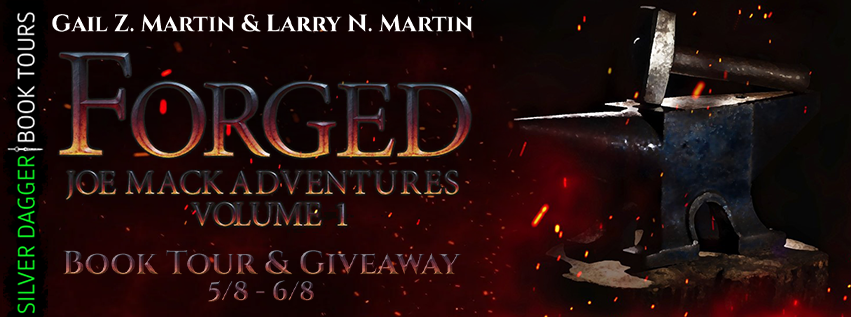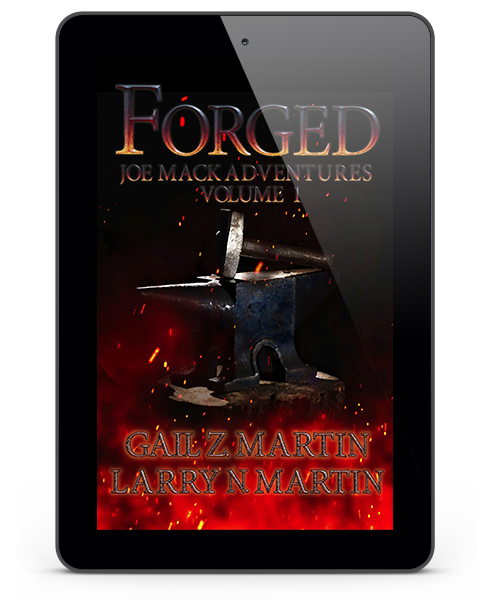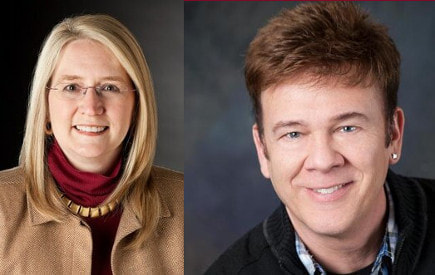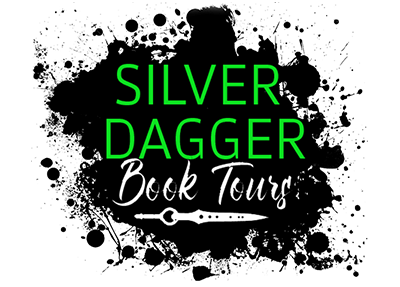Forged (The Joe Mack Adventures Volume 1) Urban Fantasy, Roaring 20's Monster Hunter by Gail Z. Martin & Larry N. Martin ➱ Book Tour with Rafflecopter
Forged
The Joe Mack Adventures Volume 1
by Gail Z. Martin & Larry N. Martin
Genre: Urban Fantasy, Roaring 20's Monster Hunter
When
you ask a god for favors, be careful what you wish for. You just
might get it.
From the bloody steel mill strikes of
Pennsylvania rose a true man of steel, a steelworker transformed into
something more by the power of the old gods. Josef Magarac was a
brave man, a strong man, a hard-working immigrant who only wanted a
better life for his family. Then he was murdered, and an ancient
Slavic god brought him back to life, gave him new abilities, and a
mission to protect those who can’t protect themselves.
Now
he’s Joe Mack, and together with his allies, Secret Service agent
Jack West and heiress Sarah Grace McAllen Harringworth, he handles
the hard cases the regular feds won’t touch like magic-wielding
mobsters, Lovecraftian monsters, and secret supernatural
societies.
The Joe Mack Adventures: Volume One is a non-stop
thrill ride full of paranormal action, found family, dark magic, and
loyal friends.
This is a collection of four books in the Joe
Mack Shadow Council Files by award-winning author team Gail Z. &
Larry N. Martin, authors of the Spells, Salt, & Steel and the
Wasteland Marshals series. The Shadow Council Case Files are
historical fantasy novellas set in the world of Quincy Harker, Demon
Hunter, that tell the true stories behind the tall tales surrounding
some of the world’s most famous (and infamous) folk heroes.
This
collection includes Cauldron, Black
Sun, Chicagoland,
and Spellbound.
Excerpt from Cauldron, Book 1
JULY 1892– HOMESTEAD, PENNSYLVANIA
I’D NEVER BEEN to war before.
Bullets whizzed past my head, and I ducked, trying to stay out of the firefight. All I had was a rock, and my aim had never been that good. I didn’t want to die tonight here on the river bank, but I wasn’t a coward. I stood shoulder to shoulder with my fellow workers, determined not to let the Pinkertons reach the steel mill behind us.
Two men already lay dead, one of ours, and one of theirs. I knew the Pinkertons fired first, but later, they’d claim we did, if any of us survived. The agents kept up a barrage from their boat, firing blindly into the crowd. I heard men cry out in pain and fear.
Women prayed, calling on God in Polish, Russian, Hungarian—all the languages of the mill. Boys too young to shave clamored for a spot on the front line, thinking it all great sport.
I knew better. This riverbank would be soaked in blood before dawn.
Someone spilled oil into the river, and lit leftover fireworks from the parade along with a few sticks of dynamite, tossing them toward the Pinkerton boats, trying to make them go away.
My heart froze in my chest. Fighting the king’s men back in Hungary, or the hired guns of Carnegie and Frick, it was all the same. One side could afford an army of soldiers, and the other side offered up their own blood and sinew, all that they had, daring to demand pay enough to buy bread.
“Hey, Magarac. You think we’re gonna win this?” Piotr Kowal-czyk, my best friend from the mill, stood next to me with his own pile of rocks.
“I hope so,” I replied, figuring a lie was better than the truth.
Piotr crossed himself. I didn’t, and Piotr either didn’t see or didn’t mention it.
The Pinkertons kept firing. Higher up the hill, our side fired back. The whole town was out here, men, women, and children. I’d heard that the owner of the hardware store donated all his ammuni-tion to the cause. Shots rang out around us. I saw the bullet strike Jakob Nowak in the chest, sending up a spray of blood. His arms flew out from his body, and his head snapped back, then he fell and didn’t move.
We screamed in fury. Those closest to the shore threw whatever they could get their hands on, pelting the Pinkerton boats. Flames rose in the night. Some of the workers lit a barge on fire and sent it toward the boat with the hired muscle. More dynamite went off, sending up a wall of water and nearly swamping the agents’ boats.
Still, they fired on us. And I knew that come dawn, there’d be more of them.
All I’d wanted was a job. I’d come to America, to this little town outside of Pittsburgh, from my native Hungary with my wife and baby son to make a new start. We didn’t have enough to eat in the Old World. Work was scarce, and the police in my village were dishonest. My uncle Stanislaw left first, making his way across the ocean, and sent back for me. I brought my wife, Agata, and our baby son, Patryk, with me because I believed we would have a better life here.
Within a year, they were dead of a fever, and I was alone. I stopped praying to the Holy Mother the night I’d buried my family.
If I prayed at all, which wasn’t often, I called on the Old Gods, the ones I’d heard my great-grandmother whisper about in the dark of night. Carnegie and Frick claimed Jesus and the Apostles. But the Old Gods weren’t beholden to the men who owned the mills and thought they owned our bodies and our lives. They were ancient and powerful, and they did as they pleased. Whether or not they cared about the likes of us, I wasn’t sure.
“Magarac! Look—the Pinkertons are leaving!” Piotr crowed, elbowing me. I looked down toward the dark waters of the Monon-gahela River. Sure enough, the barge was withdrawing. A cheer went up from our side, and voices shouted taunts in a dozen languages.
“We won!” Piotr cried out, lifting his arms in the air in victory.
“We drove the sons of bitches back!”
I could not share his glee, or join in the celebration going on all around me. Good men were dead, and our “win” wouldn’t comfort their kin. I knew that men like the robber barons didn’t give up so easily, not to the likes of us. We stayed encamped around the mill, holding it prisoner, while the men who led our union went to Pittsburgh in good faith to negotiate terms. The camp had a holiday air about it, giddy with having driven back the hired guns. Women brought us food from town, and young boys ran through the strike camp, chasing each other with sticks for rifles and pinecones for rocks, acting out the victory. I forced a smile and stayed with my friends, but in my heart, I knew it wasn’t over.
Vengeance came swiftly. There had to have been thousands of armed soldiers.
We didn’t stand a chance.
Bullets flew, and bayonets flashed. Piotr died with a look of shock on his face, cut down when a slug took off part of his head.
His blood and brains splattered my face and soaked my shirt. He’d raised his hands in surrender, and they didn’t care. “Fucking Polocks,” the soldier shouted, right before he fired.
I didn’t have a gun, but I screamed a curse in Hungarian and hurled a rock at the man who killed my friend, and clipped his shoulder. All around me, men fell as shots rang out.
The soldier didn’t bother to reload. He turned the rifle in his hands and slammed the stock into my head. I stumbled, and two of his buddies were on me, beating me with fists, kicking my ribs and groin with heavy boots, stomping down on my chest and face. I couldn’t see with blood running into my eyes. They kept beating me, kicking and punching, and my breath came with a wet rattle as I brought up blood. All the while, they cursed me, vile words against my homeland and my people, mocking my accent and telling me to go back where I came from.
I knew the only place I would go from here was the churchyard at St. Michal’s.
When the soldiers had their sport, they left me for dead among the corpses and rounded up the survivors, marching them back to town, perhaps to jail. From where I lay, I could see Piotr, his face pale, eyes staring.
Rage filled me, for Piotr and all the others, for the men dying around me amid the gun smoke and the fire. I drew a painful breath and called on the only being I trusted to hear my cry.
Krukis, god of blacksmiths.
I had seen his image in an icon my grandmother hid behind a likeness of St. Peter. I’d always been drawn more toward Krukis, with his bare chest and powerful arms, striking iron on an anvil with a powerful hammer and a raging fire, than I had been by the serene man in white robes with a halo. My world had dirt and ash and flame, and Krukis wasn’t afraid to get dirty.
Through the smoke, I saw him, striding toward me like an ancient predator. Perhaps it was a vision brought on from being at death’s door. Krukis stood at least seven feet tall, broad-shouldered and thick-muscled from the forge. His black hair hung long around his stern, handsome face. Slate gray eyes surveyed the carnage, afraid of no one.
“Jozef Magarac. Why have you summoned me?”
The deep voice rang in my head. Maybe I was already dead, come to judgment day. No, not dead yet. The air still stank of blood and piss, and my mouth tasted ash. I again wondered if this was delusion caused by the pain, but I decided it didn’t matter. If there was any chance, any chance at all…
“Give me justice, for the men killed today,” I begged. I wasn’t afraid to die. Life was a constant struggle. Death meant rest or peaceful obliv-ion. But I would not die like an animal, unavenged. “Make me the instrument of your vengeance.”
Krukis’s laugh rumbled through the air like thunder. “Think your-self up to the task?”
“If not me, then who?” Clearly, being almost dead made me insanely brave to challenge a god.
Krukis stopped laughing. He regarded me with a gaze that seemed to see down to my bones, assessing my paltry courage and many failures. It took everything I had not to shrink beneath that scrutiny, but fury made me bold. I stared back, unflinching.
“Very well, Jozef Magarac. I will grant your prayer. To you, I give the strength of a mule team and the speed of a racehorse. You possess the heart of a warrior, but to that courage, I add magic, when you call on my name. Your bones will be steel, and magic can make your skin metal for a short time. You will not age, and cannot die but by the hottest of fires. You will be my servant, meting out my justice, and I will be your god.”
“Agreed. By my blood and bone, make it thus.”
Lighting struck me, coursing through my veins, setting bone and skin and sinew on fire. I screamed, never having felt such agony before. Then, abruptly, the pain stopped. I drew in a breath, and nothing hurt. My blond hair was still matted with blood, but the gash on my forehead, the swollen eye, the split lip—all were healed.
I opened my eyes and found Krukis giving me an appraising look. “I will be watching, as will my companions. Expect to hear from us, now and again. I shall be quite interested to see what comes of this vengeance of yours. Do not forget the fires that forged you.”
With that, Krukis vanished, leaving me alone with the dead.
Gail
Z. Martin discovered
her passion for science fiction, fantasy and ghost stories in
elementary school. The first story she wrote at age five was about a
vampire. Her favorite TV show as a preschooler was Dark Shadows. At
age 14, she decided to become a writer. She enjoys attending science
fiction/fantasy conventions, Renaissance fairs and living history
sites.
Larry
N. Martin is
the author of the new sci-fi adventure novel Salvage Rat. He is the
co-author (with Gail Z. Martin) of the Spells, Salt, and Steel/New
Templars series; the Steampunk series Iron & Blood; and a
collection of short stories and novellas: The Storm & Fury
Adventures set in the Iron & Blood universe. He is also the
co-author of the upcoming Wasteland Marshals series and the Joe Mack
Cauldron/Secret Council series.
The
Martins have three children, a Maltese, and a Golden
Retriever.
Website
* Facebook *
Twitter * Twitter
* Instagram
Bookbub * Bookbub * Amazon * Goodreads * Goodreads
Follow the tour HERE for special content and a giveaway!
$20 Amazon








Thank you for posting about Forged, the synopsis and excerpt have intrigued me and I am looking forward to reading this story
ReplyDeleteThis sounds really good. Great cover.
ReplyDeleteThe cover looks great. Sounds like a good book.
ReplyDelete